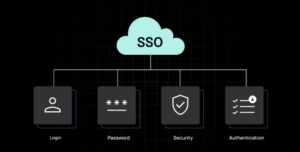
In today’s rapidly evolving healthcare landscape, explore high-demand nurse educator opportunities today to find your place at the forefront of healthcare education. As more aspiring nurses enter the workforce, the need for experienced and passionate nurse educators is skyrocketing. If you have a strong nursing background and a love for teaching, now is the perfect time to transition into this dynamic role.
Nurse educators play a vital role in shaping the future of healthcare by equipping the next generation of nurses with critical knowledge, skills, and confidence. From academic institutions to clinical settings, the demand for qualified nursing faculty is growing. This article will guide you through the high-demand landscape of nurse educator careers, the qualifications required, potential workplaces, salary expectations, and how to get started.
Why Nurse Educators Are in High Demand
The increasing global demand for healthcare services has triggered a surge in nursing school enrollments, creating a parallel need for experienced nurse educators. According to the American Association of Colleges of Nursing (AACN), thousands of qualified nursing applicants are turned away each year due to a shortage of faculty. By stepping into the educator role, nurses can help fill this critical gap and impact countless future healthcare professionals.
Moreover, explore high-demand nurse educator opportunities today the aging population and the retirement of current nursing faculty further compound the need. This creates an ideal opportunity for seasoned nurses to transition into academia or clinical education, where they can pass on their expertise while enjoying flexible schedules, career stability, and professional fulfillment.
Key Qualifications and Skills Needed to Become a Nurse Educator
To explore high-demand nurse educator opportunities today, one must typically hold at least a Master of Science in Nursing (MSN), though a Doctor of Nursing Practice (DNP) or Ph.D. in Nursing can unlock even more advanced teaching roles. In addition to educational credentials, most employers require several years of clinical experience to ensure educators bring real-world insights to their instruction.
explore high-demand nurse educator opportunities today Beyond formal qualifications, successful nurse educators possess excellent communication skills, patience, adaptability, and a passion for lifelong learning. The ability to design curriculum, assess student performance, and integrate technology into teaching are also essential. Investing in continuing education and professional development helps maintain teaching relevance and effectiveness in today’s fast-paced healthcare environment.
Career Settings and Specializations for Nurse Educators
Nurse educators can find employment in a variety of settings, including colleges and universities, community colleges, vocational schools, teaching hospitals, and healthcare facilities. Some even work remotely, developing and delivering online nursing courses—an increasingly popular option in a post-pandemic world. This variety allows educators to choose the environment that best suits their lifestyle and teaching preferences.
Specialization is another exciting avenue. Nurse educators may focus on specific nursing fields such as pediatrics, gerontology, psychiatric care, or surgical nursing. They may also concentrate on clinical instruction, simulation labs, or curriculum development. These niche areas not only increase job satisfaction but can also open doors to leadership positions within academic and healthcare institutions.
Salary Expectations and Job Outlook for Nurse Educators
One of the most attractive reasons to explore high-demand nurse educator opportunities today is the strong earning potential and job stability. According to the U.S. Bureau of Labor Statistics, the average annual salary for nurse educators is approximately $84,180, with top earners making well over $100,000 depending on their location, education level, and area of specialization.
The job outlook is equally promising. Employment for postsecondary nursing instructors and teachers is projected to grow by 22% from 2020 to 2030—much faster than the average for all occupations. This robust demand not only ensures job security but also presents opportunities for career advancement, research, and influence within the healthcare education system.
How to Start Your Journey Toward Becoming a Nurse Educator
If you’re ready to explore high-demand nurse educator opportunities today, begin by evaluating your qualifications and career goals. Consider enrolling in an MSN or doctoral program with a focus on nursing education. Many schools offer part-time and online options, allowing you to continue working while pursuing your degree.
Next, seek mentorship from current nurse educators, attend nursing education conferences, and join professional organizations like the National League for Nursing (NLN). These steps will provide networking opportunities and insights into best practices. Lastly, build your teaching portfolio by volunteering as a clinical preceptor or adjunct instructor. These hands-on experiences are invaluable stepping stones toward a successful career in nursing education.
Conclusion: Answer the Call to Educate Future Nurses
Now is the perfect time to explore high-demand nurse educator opportunities today and become a key contributor to the future of healthcare. As the industry continues to expand, so does the need for competent, compassionate, and committed nurse educators. Whether you’re looking to make a career transition or add teaching to your current role, the path to becoming a nurse educator is both rewarding and impactful.
By taking the first step today, you’re not only advancing your own career but also empowering the next generation of nurses to provide excellent patient care. With the right qualifications, mindset, and passion, your journey to becoming a nurse educator can begin now.
FAQs About Nurse Educator Opportunities
1. What degree is required to become a nurse educator?
Most nurse educator roles require a Master of Science in Nursing (MSN). A doctoral degree may be required for teaching at the university level.
2. How much clinical experience do I need to become a nurse educator?
Most institutions prefer candidates with at least 2–5 years of clinical experience in a relevant nursing specialty.
3. Can I work remotely as a nurse educator?
Yes, many schools and programs offer remote or hybrid teaching roles, especially for theoretical and online nursing courses.
4. Is there a demand for nurse educators globally?
Absolutely. The global nursing shortage and increased healthcare demands have led to a worldwide need for qualified nurse educators.
5. What are the benefits of becoming a nurse educator?
Benefits include job stability, flexible schedules, academic growth, and the opportunity to mentor future nurses.
6. Are nurse educators involved in curriculum development?
Yes, they often design, evaluate, and update nursing curricula to meet current healthcare standards.
7. Can I teach while still working as a nurse?
Yes, many nurse educators work part-time in clinical settings or as adjunct faculty while continuing their nursing practice.
8. How do I transition from a clinical nurse to an educator?
Start by gaining additional qualifications in education, volunteering as a preceptor, and applying for entry-level teaching roles.
9. Do nurse educators need teaching certifications?
While not always required, certifications like the Certified Nurse Educator (CNE) credential can enhance credibility and job prospects.
10. Where can I find job openings for nurse educators?
Check job boards like Indeed, HigherEdJobs, and professional nursing organizations such as NLN and AACN for up-to-date listings.







